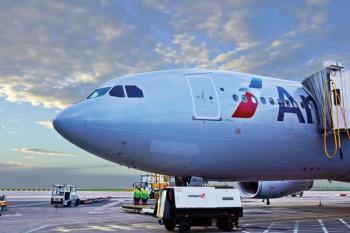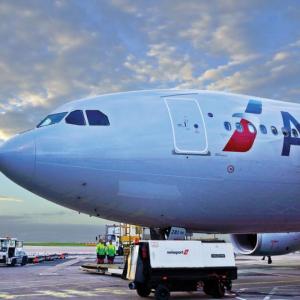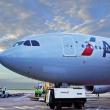United and American Airlines debacles: We are all bystanders
It’s been several weeks since police and United Airlines dragged Dr. David Dao out of his seat, through the aisle and off a plane. We were in the middle of writing this piece, when another ugly incident occurred on American Airlines. Passengers filmed a confrontation between a mother having her stroller taken away by a male flight attendant, who allegedly (and perhaps inadvertently) struck her with it, as he pulled it away and a male bystander, who stood up for her.
On April 9, like so many millions of people, after seeing the United Airlines video, I was angry. I had an agitated conversation that night with my husband about it, not only the unnecessary brutality of it, but also the complete lack of action on anyone’s part.
“How could a plane full of passengers just sit there and do nothing but lift up their cell phones to record this man getting beaten and dragged off a plane?” I’d asked.
The conversation pivoted into a classic game: “What would you do if you were in that situation?”
As the co-author of a cyberbullying book, I’ve done a lot of research about bystanders and their willingness to step up to a confrontation after witnessing it. I reached out to my colleague, Chuck Nguyen, someone I’ve known for at least a decade, after we both worked with teens at the Zenith Alternative High School.
Chuck is a social worker, diversity advocate, and bullying prevention educator and currently works as a counselor at Medomak High School. He’s also the founder of Power of H20, which provides students with psychological tools to overcome bullying and obstacles. Chuck contributed quite a bit of insight to our cyberbullying book and like me, he is familiar with the multiple directions bystanders can go in an escalating situation of conflict.
“Watching the incident of Dr. Dao being dragged off possibly unconscious off United Express flight 3411 can and did stir powerful and overwhelming emotions of anger, resentment, and social outrage,” he said. “This might be beneficial and effective in bringing social awareness and possibly better practice and policies when it comes to the friendly-turned-unfriendly skies.”
To start, let me clarify something. In my opinion, David Dao wasn’t "bullied" by the police. The meaning of bullying often gets mischaracterized. He was brutally assaulted after passively resisting to vacate a flight, which he’d paid for and had every legal right to keep.
I asked Chuck for his insight.
“Bullying is power difference. When the captain of the football team or cheering squad hurts a classmate who is not as athletic or popular with words or social humiliation, there is a power difference. When an adult hurts a kid with words, action, or sarcasm, there is a power difference. When a manager of a major airline orders three security officers to forcibly remove a passenger ‘any way necessary’ because he or she thought he could, there is a perceived and established power that allows him or her to order such an act. The CEO even confirmed the next day that the manager and airline employees that they are in right since they were following protocols and that Dr. Dao was being ‘belligerent.’ The CEO, Mr. Munoz, crumbled to social media pressure and declining stock value, later apologized and stated that no customer should ever be treated like that.”
Of all the ways this story has been analyzed and dissected, the one angle that needs more evaluation is why didn’t a plane full of people on the United flight witnessing this do anything?
The passengers were clearly shocked enough to whip out their cell phones and videotape the incident. And perhaps, that is doing something—chronicling the incident. But, why did no one physically intervene?
Off camera, a lot of murmurs of dissent that could be heard on video, with people saying “Please, my God,””What are you doing?” and ”This is wrong.”
Chuck is also a trainer in the crisis prevention and de-escalation for special ed teachers in RSU 40 for the past 10 years called the Mandt Systems, which focuses on keeping students with severe emotional and development needs safe.
They do this by using non-physical methods to prevent crisis and escalation, unless the person is in imminent or immediate risk of self-harm or harm towards others.
“I believe that Dr. Dao’s incident offers some great lessons for me to share with my martial arts students and other young people I work with on daily basis in a public high school,” he said. “There have been many perspectives and angles given about the incident coming from pilots, flight attendants, and family members of these professionals regarding airline safety and compliance. My brother has been a flight attendant for the past 25 years. I am sure he has dealt with many real belligerent, drunken, and unsafe behaviors over that time. Nothing about Mr. Dao’s incident indicates a safety issue. He simply said I do not want to give up my seat because he wanted to go home. This incident gives me the clarity that if I was ever in that situation, I would have the courage and little ‘crazy determination’ to block the aisle to keep Mr. Dao from being dragged off the plane. What if 10 or 20, or half the passengers did the same?”
I asked Chuck what he’d do specifically because he is a martial artist. Likely most of those passengers surrounding Dr. Dao were not, and would not have the training or practice to stand up to three security officers and physically prevent them from assaulting a passenger.
Then the American Airlines incident happened on April 24, in which a male bystander did stand up and intervene. He may not have had all of the facts at the moment of confrontation. (There have been multiple reports that the woman was allegedly not being cooperative about the stroller, ignoring the flight attendants’ warnings not to bring it aboard.) Regardless, of what that male passenger knew, he saw the woman was crying and that there was a perceived power difference. Apparently upset with how the woman's situation was handled, he told the flight attendant, "Hey bud, hey bud. You do that to me, and I'll knock you flat."
As a woman with no marital artist training, I would have felt a lot of adrenaline, and uncertainty in that situation as well, and for me personally, threatening “knock a man flat” isn’t something I’d do. But I have a voice and I could say: “What you’re doing to that person is wrong!” What if the entire plane had used their voices and that was caught on camera? Do you think that the power difference would have changed the Chicago security officers’ or the American Airline flight attendant’s behavior? What if you walked off that plane in protest, as some people did on the United Airlines flight?
The point is use these incident to think about what you’re capable of, and prepare how you will react, next time you see someone in a public situation being victimized by a clear power difference.
“I am more convinced now about what I hope I would do and what I would encourage my students to do if they were on that plane that day,” said Chuck. “Raise your hand and take a stance. Filming the incident on the smart phone is good documentation, but who among us would have the courage, and more importantly the preparation and determination to intervene because we cannot let another human being mistreated and abused like Dr. Dao? Or that woman with the baby? Taking a stance is not a natural reaction. Many us are taught growing up that we need to own our business and not to make a scene. Maybe it is time we learn that some times it is necessary to get into somebody’s business and make a scene.”
So let’s play that game. “What would you do in that situation?”
Event Date
Address
United States




























